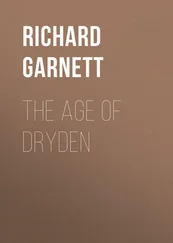Paris had its own beauty, but it didn’t feel quite real to Charlotte somehow. She felt unreal in general, stranded in a limbo of inactivity, caught in the same haze of sunlit faux-honeymoon days and sex-crazed nights that had characterized the voyage to France. She still couldn’t quite believe her mission was over. None of it had sunk in yet. Although she knew she would have to work it out at some point, she had no idea what came next. The future was even more daunting than the prospect of entering the opera house again.
“Did you know they wanted to turn the Palais Garnier into a museum, decades ago?” she asked Dexter, halting just outside the periphery of the gathering crowd. “Somebody proposed a new building for the opera, more modern. Instead they renovated this one. I’m glad they did. It’s a beautiful structure.”
Dexter waited at her side, seeming sensitive to her reluctance. “What happened to the new building?”
“They couldn’t raise the funds,” Charlotte murmured, lifting her gaze to the roofline where the golden statues seemed to shine with a light of their own in the brilliant electric illumination. “There was a war on, after all.”
“We could return to the hotel,” Dexter offered. “Leave a message for Murcheson and go back? The Ritz is almost like a second home to me now.”
She smiled. “We’ll stay for at least the first half. I don’t know why I’m being so silly. I did get away.”
“By the skin of your teeth, from what you said.”
“I suppose I’m just still wary. I keep telling myself my work in France is done, and yours doesn’t put us in nearly as much danger. But some part of me is still on alert. Perhaps by the time I’m back home, my nerves will have finally settled down.”
He pulled her hand more firmly over his arm and led her into the glittering gilded foyer.
Charlotte relaxed within a few minutes. It was different with people crowding the rooms, movement on the stairs, lights everywhere sparkling over gowns and headdresses and jewels. Merely standing in the midst of it all provided a rich and heady visual feast, the people and paintings all so ornate and colorful the eye could scarcely find a spot to rest.
The grand box in which Murcheson was already seated was a respite from the crowd and noise, allowing an overview of it all without the overwhelming business. Such, mused Charlotte, was the privilege of the privileged—to have access to every luxury, but suffer only as much excess as one cared to tolerate.
“Sit and have a drink,” Murcheson advised them as soon as they entered. He snapped at a page who stood by with a tray of champagne, then shooed the lad out once Charlotte and Dexter had each taken a glass.
“I have my industrialist hat on tonight, I’m afraid. What do you know about the French steamrail project?” he asked bluntly once they were alone.
Charlotte shrugged, at a loss, but Dexter leaned forward with a frown. “I know they want to expand it vastly over the next several years. I also know you’re most likely bidding for it, and I wish I were in a position to compete. The contract will mean years of steady revenue.”
“Yes, the sweet low-interest milk of the government teat,” Murcheson confirmed. “Of course, as France is only late to the game of large manufacture—excepting war machines, naturally—most of their people are at a disadvantage. Their late entry into the global steam-car market hasn’t profited them enough to retool for anything larger and more lucrative. So the contract will almost certainly go to a foreign bidder . . .”
“Except?” Dexter supplied.
“Precisely,” Murcheson nodded. “Except . . . our friend Dubois. I just found out he’s preparing a bid that would undercut me substantially if my information is correct. However, his bid is almost completely unrealistic because it’s based on equipment and facilities he does not yet possess. Even that could be remedied, if he could afford them, but it seems he can’t. Not remotely.”
“How badly off is he?”
“All but bankrupt. If it weren’t for his political connections he’d be in debtor’s prison right now, I suspect. He must win this bid to survive.”
The house lights dimmed and the crowd rustled to a hush. The orchestra finished tuning up and swung into the overture.
“Perhaps that’s why he’s bold enough to meet with Gendreau at his own office in the middle of the day,” Charlotte whispered as the curtains drew back. Norma had never been her favorite opera, and she was far more interested in what Murcheson had to say. “Desperation. Maybe that’s what Gendreau is really doing back here; he has some secret new invention Dubois thinks will make him money. But if I may, I had a question about something we discussed yesterday?”
Dexter agreeably sat back, letting the two of them whisper in front of him. Charlotte almost jumped as his hand skimmed over her back, which was bare in the sweeping plum-colored satin gown she’d chosen.
It was another husbandly gesture, that delicate touch—proprietary and deliberately flouting propriety just because he could. Charlotte willed herself to ignore it.
“I’m not a huge fan of Bellini myself,” Murcheson confessed. “What was your question?”
“Well, I thought perhaps by focusing on Dubois and Gendreau and Coeur de Fer, we’re coming at things from the wrong angle. Tell me more about Simone Vernier.”
“That could be a long story. First let me remind you that officially, there is no ‘we’ here, Lady Hardison. But in an informal capacity, let’s see . . . as far as we know, Vernier slipped into Dubois’s confidence by pretending to be a double agent. She made no secret of the fact she was a spy, but had convinced him she was secretly working for the post-royalists against the ruling Égalité faction. He’d been working both sides himself, courting the current regime but still making money selling weapons to the ousted party on the side.”
“That was why the Égalité were watching him?”
“We can only assume so. But shortly before the treaty was signed, Vernier traveled to Cambridge in the guise of a well-known Swiss chemist. While she was there, she managed to purloin the formula for the explosive. The researchers were all quite charmed by her, from what I hear. Never suspected a thing. Apparently before she became a spy, she’d been a chemical engineer, which was probably why the French sent her after the documents. She knew their language.”
“Would you like to change seats with me, sugarplum?”
Charlotte glanced at Dexter, startled. “Oh! Oh, that’s very kind. Yes, thank you, I believe I would.”
She was surprised that Dexter was so interested in the opera, but quickly forgot in her curiosity about the documents and the conversation with Murcheson.
“You said Vernier hadn’t shared the notes with anyone in the French government. How can you be sure of that?”
Murcheson shrugged. “She wouldn’t have had time. By the time she returned to France, it seems Dubois had found her out. He killed her within a few hours of her return, if the reports are accurate. Drugged her, then stuffed a pillow over her face. Ignominious way to go. Dubois was charged, but evidently managed to buy his way out of a guilty verdict.”
“That’s monstrous. Especially if—was she really Dubois’s mistress in . . . in practice?” Charlotte asked, glad for the dark that hid her blush.
“Oh, yes. He wasn’t quite as revolting in those days, of course. Since the war he’s degenerated. His appearance finally starting to reflect his habits, I suppose.”
“Now he’s monstrous inside and out,” Charlotte concurred. “Vernier must have been fanatically devoted to her country, to make such a sacrifice. It hardly seems right that she died for it. Even if it was the French she was loyal to.”
Читать дальше












